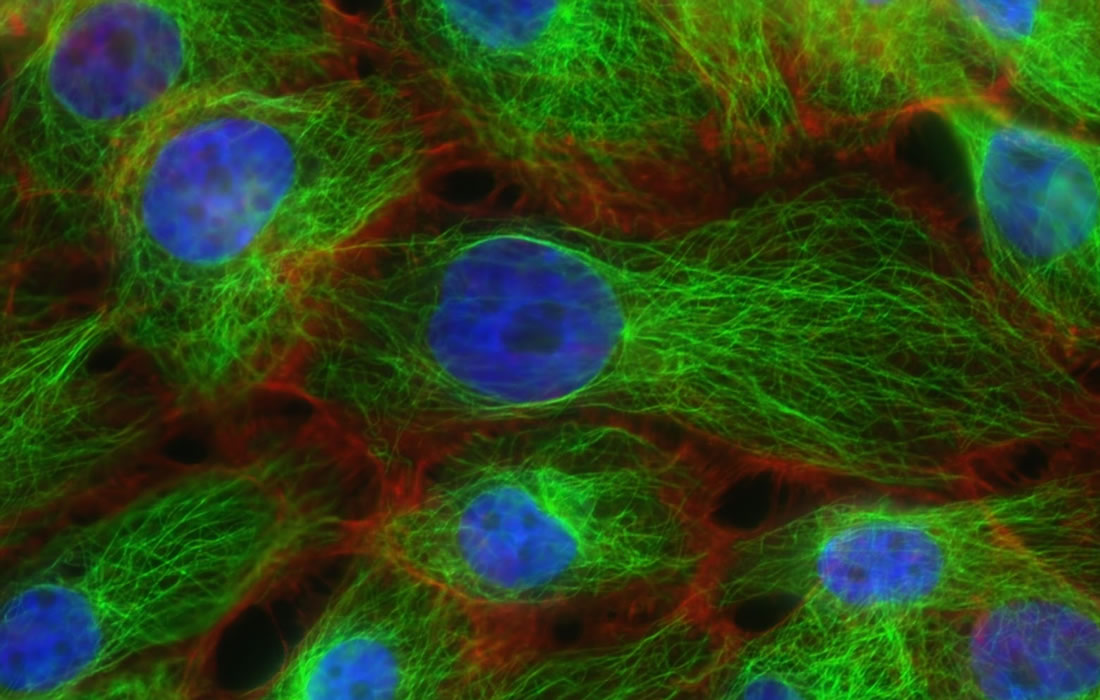Regenerative Medicine News and General Information
Potential New Treatment for Liver Cancer
Gene therapy that induces the body to create microRNA-22 (miR-22), a naturally occurring molecule, successfully treated mice with hepatocellular carcinoma, the most common form of liver cancer.
MicroRNAs are small molecules that contain ribonucleic acid (RNA), a type of genetic material. MicroRNAs are widely found in plants and animals. They are “non-coding,” meaning they do not make proteins like some other RNA molecules.
In the case of miR-22, it acts like a brake, stopping the production of certain proteins, including cyclin A, protein deacetylases and hypoxia-inducible factor, that can fuel liver cancer growth. A lack of miR-22 is found in hepatocellular carcinoma tumors, and its levels can predict survival time for patients with the disease.
Wan studies the interaction between gut microbes and the liver, what’s known as the gut-liver axis. Her previous research shows that metabolites produced by the gut microbiome help create miR-22 and have anti-cancer benefits. These metabolites include retinoic acid, short-chain fatty acids, bile acids and vitamin D3.
When people have colon or liver cancer, signaling from these metabolites is reduced, which in turn reduces miR-22.
For this study, Wan and first author Ying Hu, an assistant professional researcher in Wan’s lab, turned to gene therapy.
Using an inactivated adenovirus, they introduced miR-22 into the mice with a single intravenous injection.
The mice treated with the gene therapy were compared with mice treated with the current FDA-approved drug lenvatinib, untreated mice and healthy mice.
Both miR-22 and lenvatinib inhibited the progression of liver cancer compared to untreated mice. However, the miR-22-treated mice had longer survival times without toxicity compared with lenvatinib-treated mice. Some of the study’s key findings:
- MiR-22 and lenvatinib reduced serum alanine transaminase (ALT), aspartate aminotransferase (AST), and cholesterol levels, indicating improved liver function.
- MiR-22-treated mice showed no blood or organ toxicity.
- At five weeks, untreated mice had enlarged livers, making up 33.5% of their body weight. The treated mice had smaller, less diseased livers, with ratios of 10.9% (miR-22) and 12.0% (lenvatinib) of body weight.
- The median survival rate was 46 days for the lenvatinib group and 50 days for the miR-22 group.
- Two mice treated with miR-22 remained alive for 60 days. In contrast, the survival time for the untreated mice was about 40 days.
“The positive findings from this preclinical study give us hope that miR-22 could be a promising alternative to treat hepatocellular carcinoma,” Hu said.
Sources:
Ying Hu, Tahereh Setayesh, Farzam Vaziri, Xuesong Wu, Samuel T. Hwang, Xin Chen, Yu-Jui Yvonne Wan. miR-22 gene therapy treats HCC by promoting anti-tumor immunity and enhancing metabolism. Molecular Therapy, 2023; 31 (6): 1829 DOI: 10.1016/j.ymthe.2023.04.019
University of California – Davis Health. “Gene therapy study identifies potential new treatment for liver cancer.” ScienceDaily. ScienceDaily, 24 August 2023. <www.sciencedaily.com/releases/2023/08/230824111908.htm>.
Images from:
Photo by National Cancer Institute
https://unsplash.com/photos/W2OVh2w2Kpo

